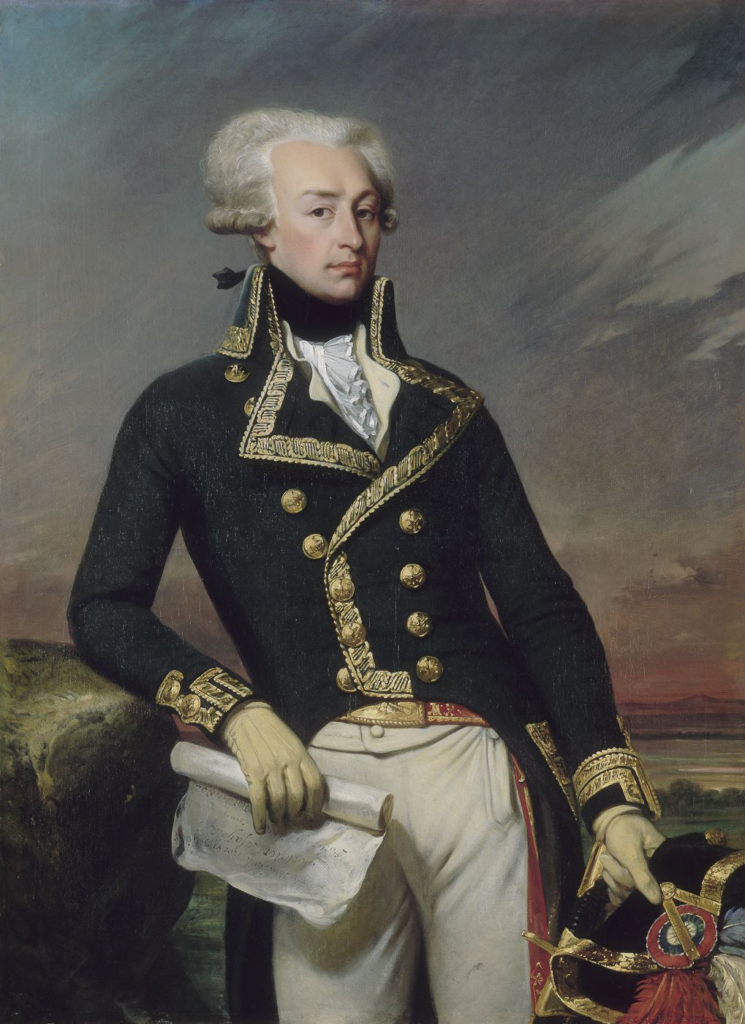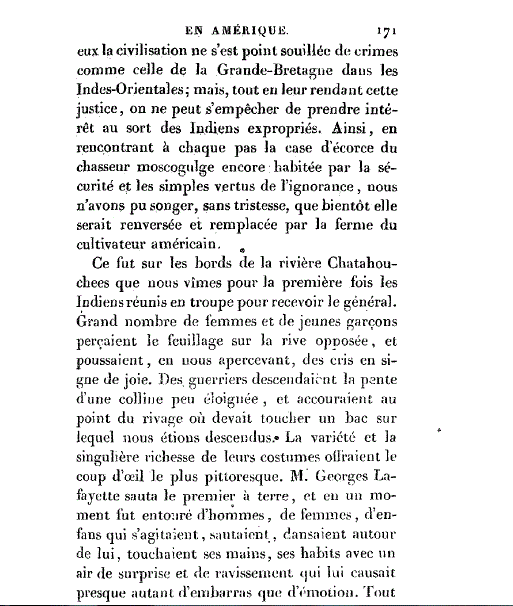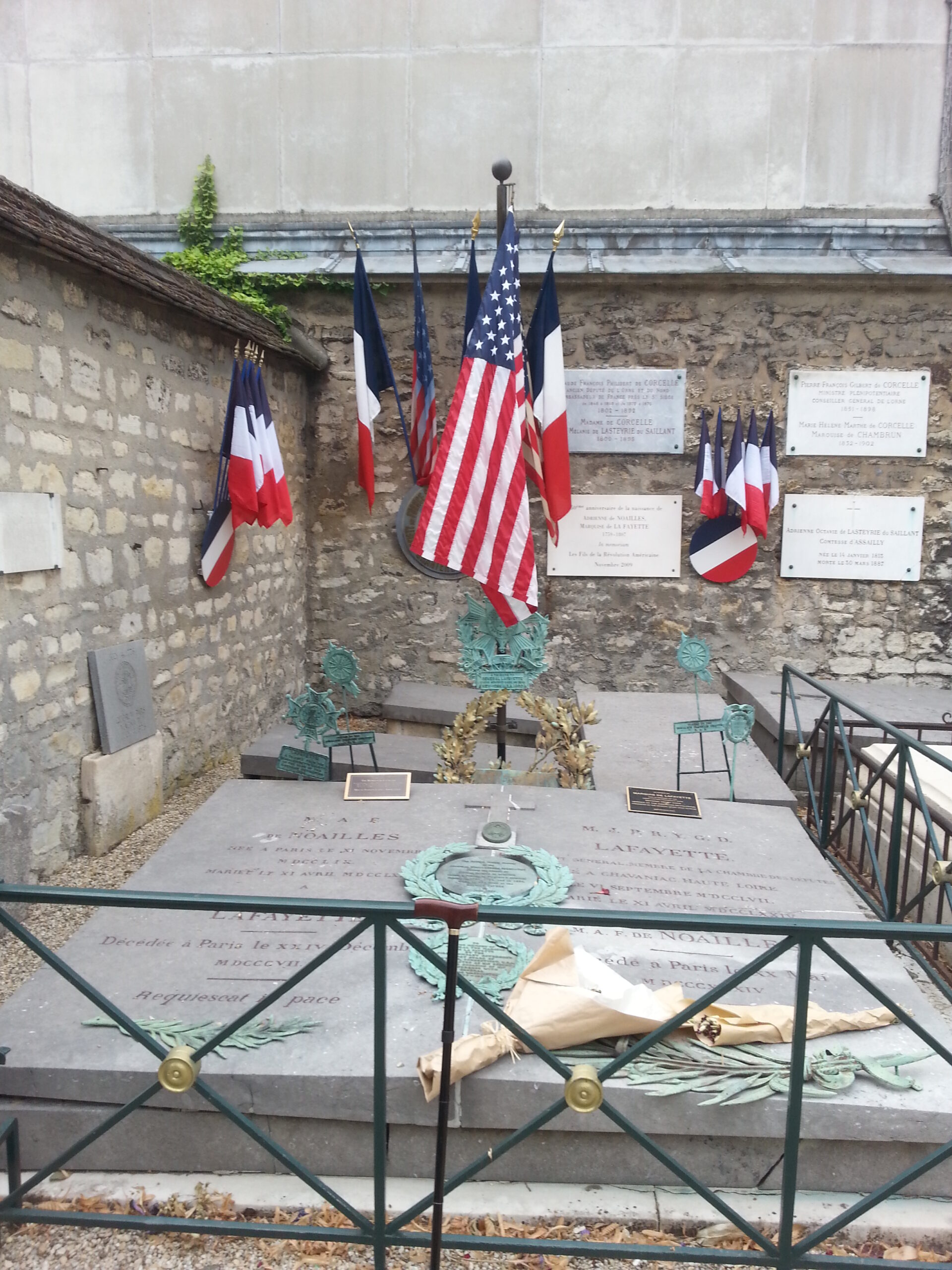Lafayette, born in the South of France, lost his father in a battle with the British when he was barely past toddler age. His grief-stricken mother left him with his grandfather who gave him his first military training. Reunited as a teen with his mother, he barely got to know her in Paris when she died, but the two deaths left him a fortune, a title, a budding military career, and hatred for the British.

When as a young officer in the French King’s military he heard about the British colonists’ rebellion, he became an advocate for democracy, constitutional monarchies, and a desire to serve in the Revolution. After difficulties from his government not wanting to let him leave France, he sneaked out and first came to the United States by landing in South Carolina, speaking hardly any English. But in the short time it took to make his way to the North, he learned English quite well and quickly became Washington’s protégé by — unlike many foreign officers — accepting no pay, asking not to command but to learn. He worked his way up the officer ranks and became beloved by all the men who served under him, eventually earning command of troops. In Lafayette’s first battle, Brandywine, Lafayette was wounded but eventually, with his good friend Alexander Hamilton, he supplied the breakthrough at Yorktown, overthrowing the key British redoubts that led to the defeat of General Cornwallis and the end of the War for Independence.
After his return to France, he unsuccessfully tried to create a republic there and reduce the royalty to a figurehead, constitutional monarchy (like today’s British royals), but failed to do so. Only his fame kept him from being killed by either side of the French Revolution, though not from being imprisoned. It took Napoleon to free him, but even then he would not change his views.
Nearly fifty years later after the start of the American Revolution, widowed, unable to sway the French Chamber of Deputies to which he had once more been elected, Lafayette retired, expecting just to hold meetings with many dignitaries at his homes in Paris. In 1823 he received an invitation to come to the USA, to help celebrate the anniversary of the start of the Revolution (and, politically, re-unite the as-usual fractious states). And, as before, the French government tried to stop him from going, but he was able to sneak out once more, with his son, Georges Washington Lafayette, his manservant and diarist Auguste Levasseur (whose diary (left image, below, is a primary resource for what happened, and which four years later became a best seller in Europe and the Americas and led to a huge increase in immigration to the United States), as the principle members of his party.


Following his return to France, he remained unsuccessful in his quest to democratize France, and he passed away nine years later. He was buried in a Paris cemetery, Picpus, in dirt he brought back from the United States so that he could lay forever in American soil (right image, above). His wife is next to him, and nearby are two large pits containing the remains of many of those souls who were beheaded in the French Revolution, included members of his wife’s family.